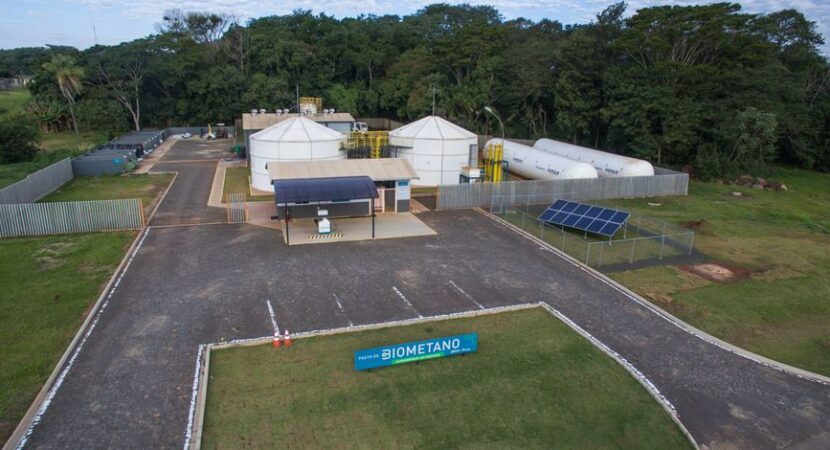
The city of Entre Rios do Oeste, in Paraná, supplies farms and city hall buildings with biogas produced from 215 tons of pig manure
After the plant that transforms waste into energy in Rio de Janeiro, another fine initiative to produce energy from “cleaner” sources has attracted attention, this time in the state of Paraná.
The municipality of Entre Rios do Oeste, in Paraná, is managing to supply electricity to 72 municipal administration buildings with electricity generated from 215 tons of pig manure from 18 farms in the region.
Taking advantage of the vocation for swine livestock, the municipality in Paraná, which raises around 150 pigs, already used biogas to feed its farms and now the breeders are able to sell the energy generated to the city hall.
The mini thermoelectric project belongs to the government, the Itaipu Technological Park (PTI) and the International Renewable Energy Center (CIBiogás).
The initiative, in addition to reducing environmental pollution caused by animal waste, has also become a source of income for farmers in the region.
The waste is treated in biodigesters, where the material is decomposed by bacteria, and generates biomethane, which is transported by gas pipelines to the place where the energy is generated. The burning of the biogas activates a generator and generates electricity.
The mini thermoelectric
The Entre Rios do Oeste mini thermoelectric power plant (MCT) has the capacity to generate 480 kW and the energy is sold to Companhia Paranaense de Energia (Copel), which financed the project and deducts the total produced from the value of the electricity bills of the County.
The producers' income is estimated at between R$ 900 to R$ 5 thousand, depending on the amount of biogas generated by each one, and who makes the payment is the city hall.
The procedure is regulated by Aneel, using the model of distributed micro and mini generation, in which the consumer can produce his own energy, such as the use of solar panels and deduct from his energy bill.
In the case of the city of Paraná, producers have meters that record how much biogas each one produced, and then how much each one has to receive is accounted for.
The project, which began in 2016, is affectionately called “pre-salt caipira”, and BRL 17 million were invested in the construction of 22 km of gas pipelines and the plant, while the costs of installing the biodigesters were borne by the producers. rural.
As the western region of the state has great potential for raising pigs, poultry and planting sugar cane, it is expected to expand the project to other raw materials and to other regions of the state.
Read too ! 27 wind turbines will be supplied by Siemens Gamesa in Bahia!








Air Force F-16 fighters…
True friend, what they shot down were…
Air Force F-16 fighters…
I would like to know what planet you live on…
Air Force F-16 fighters…
Everything is fine, 100-year secrecy,…
Air Force F-16 fighters…
Well... It's flying scrap... Typical...
Army summons Brazilians with up to…
Come be a watermelon, you too
I hope this project goes well, apparently...
Displace what with this cavalry hahaha
kkkk... after this EXPLAINING, I doubt anyone...
A horse must have a lot of morals to…
Sit in a rocking chair and…
Goodnight. How is security guaranteed…
If you are going to depend on these comments, you won’t…
No, haha, just for Biological Sciences.